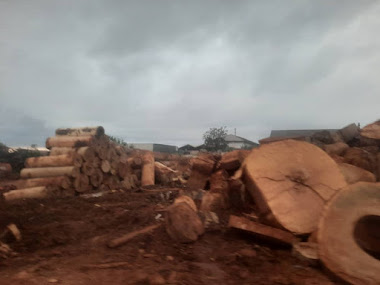Private business associations operating in Ghana’s forestry sector have formed a united front to address common challenges while pursuing a sustainable operational model.
The Forest
Industries Association of Ghana (FIAG) is formed as a not-for-profit
conglomerate of 11 trade and business associations operating in the private
sector of forestry in Ghana.
President
of the Association, Richard Nsenkyire, says priority areas include “ensuring
sustainability by promoting the adoption of circular economy and green economy
principles in our business practices. For instance, some processing companies
are retooling to be able to use more of their residues. Others are also
supplying their residues to others for further processing”.
The goal
of FIAG is to enhance corporate performance, have a common voice on concerns
and forge a strong entity to continue contributing to the socio-economic
development of Ghana.
“The
individual firms collectively employ over 300,000 in the business areas of plantation
development, logging, milling, manufacturing, haulage and equipment services,
sales and marketing; and capacity building,” said Richard.
Indirectly,
the businesses lubricate many links of the forest products supply-chain by
consuming products from other members to keep the conveyor belt moving.
“The
sector is also a major consumer of electricity, fuel, plant and machine
accessories, with other players in the economy depending on them for their
businesses to survive,” observed Richard Nsenkyire.
However,
the industry is faced with the challenge of diminishing raw material supply
from forest reserves which have gone down from 1million m3 to
500,000 m3.
Other
challenges include the dwindling log production in off-reserve areas to
unsustainable levels due to inadequate incentives for farmers to retain timber
trees on their farms as well as the degradation of the resource base due to
destruction by illegal mining, illegal farmers and illegal mining.
Chief
Executive Officer of the FIAG, Dr. Kwame Asamoah Adam, says opportunities in
the sector will be explored through the Association’s green economic models.
“The
transition to a green economy business model is necessary for companies to
achieve sustainable development targets. This virtuous circle encourages
resource and energy efficiency and promotes sustainable production, enabling
the use of environmentally friendly technologies, processes, and products,” he
said.
By
Kofi Adu Domfeh






No comments:
Post a Comment